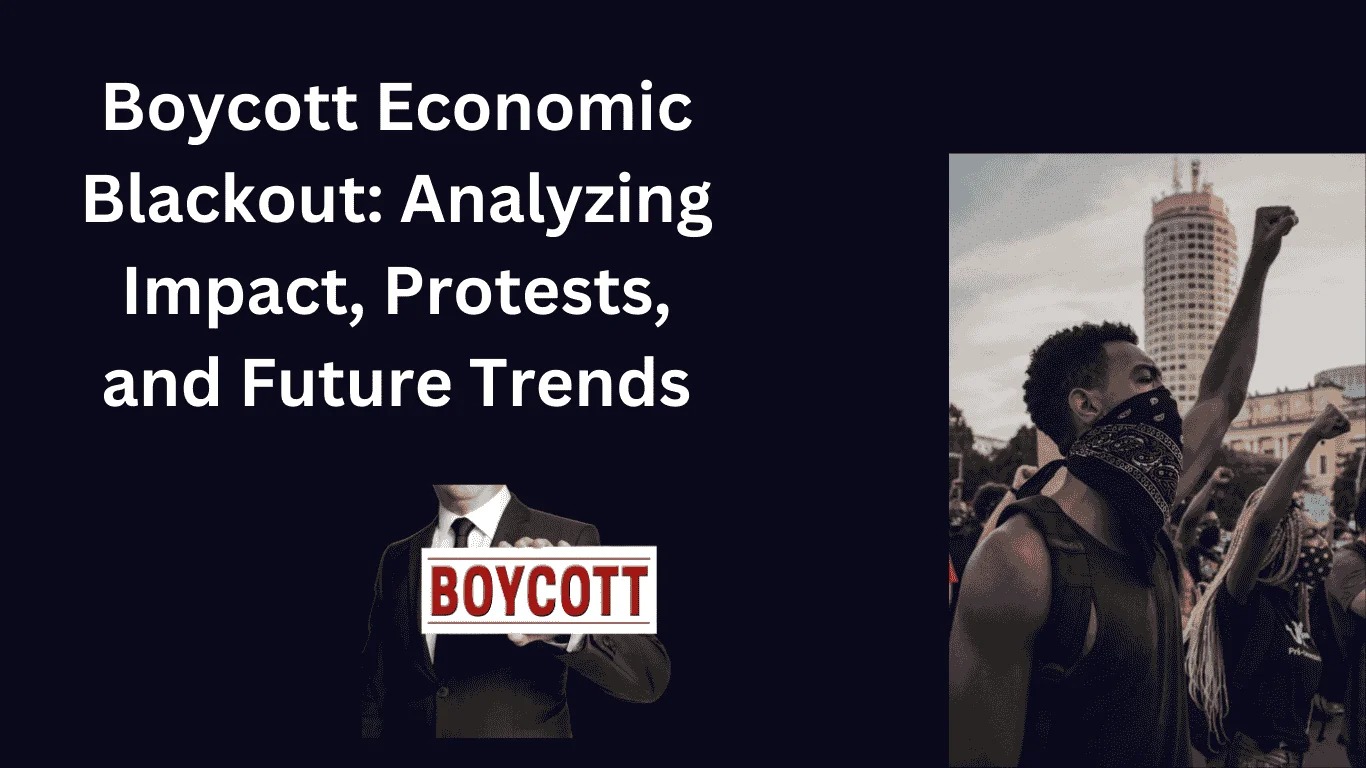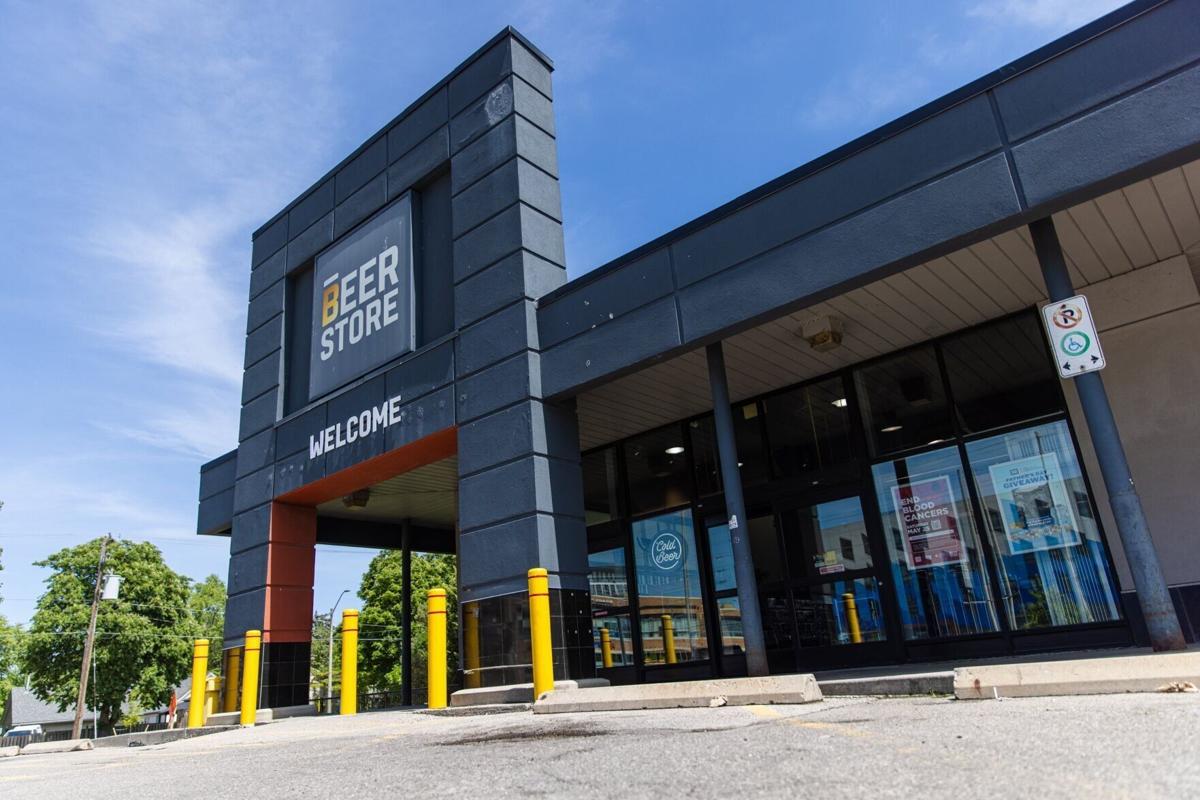Boycott Economic Blackout: A New Era of Consumer Activities in 2025
In 2025, the world experienced unprecedented consumer activity, with movements such as the Boycott Economic Blackout, which had achieved considerable dynamics. The landscape of modern social movements has changed this strong wave of protest. It aims to question and disrupt businesses and governments through economic boycott organizations. This is driven by corporate practices, environmental degradation, social injustice, ethical concerns, and growing frustration, forcing companies to rethink their practices, operations, and guidelines. It is a movement that attracts a variety of social, ecological, and political issues that are garnering drive campaigns around the world. From ecological sustainability to labor rights, racial justice and global inequality, the boycott movement not only buys products, but also sends a message to businesses and governments that people are in power and demand accountability.
Environmental Sustainability:
One of the driving forces behind the boycott movement is the growing concerns about environmental and climate change. Many businesses, especially the fossil fuels, automobiles, and the first fashion industry, have been criticized for their negative impact on the planet. For example, oil giants like Shell and ExxonMobil have been criticized simultaneously. In contrast, first fashion companies like Zara and H&M have been criticized for misusing their wasted practices and excessive use of plastic and labor in developing countries. Consumers are increasingly refusing to buy products from companies with poor environmental records.
Rights of Labour and Fair Wages:
Another main reason for the boycott movement is the struggle for fair wages and rights of labour. Global supply chains have long been connected to exploitation, especially in developing countries. In this country, employees are either paid under the minimum wage or undergo uncertain working conditions. Due to work practices, companies like Amazon and Nile have often been the goal of boycotting, particularly for treating warehouse workers and factory workers. Many choose to boycott businesses that do not provide fair wages or use employees, and support people who provide better working conditions, fair payments, and transparent work practices.
Racing equity and equality:
The struggle for racial justice has attracted considerable attention in recent years, and the economic power outage of boycotts has become a powerful tool to address the issue of racial inequality. Companies accused of maintaining racism or not promoting diversity and inclusion are attacking consumers who demand better practices. Activists are using economic blackouts to shut down businesses and implement meaningful steps towards inclusion, diversity, and racial equality. In some cases, Boycott forced companies to implement corporate guidelines that address these issues.
Ethical Consumption and Animal Rights:
Ethical Consumption is another area where boycott economic power outages gained traction, particularly about animal rights. Industries that include animal testing and the use of animals in production processes such as the cosmetics and fashion industries have been investigated in recent years.
Boycott for Good-Buys: Consumers show support for DEI and promote it on social media
In recent years, social movements from basic efforts have evolved into a global phenomenon that promotes technological advancement and the widespread use of social media. One of the best known and most powerful of these moves is the boycott of the Good Buys initiative. Consumers not only demonstrate support for diversity, justice and inclusion (DEI), but also increase their voices through social media platforms. This powerful combination of consumer activity and online interest represents a disruption to the industry, forcing businesses to deal with their practices, sparking wider debates about social justice, inclusion and responsibility. It is to create a new market for ethical consumption where companies are responsible for DEI-related actions. Consumers, especially Millennials and Generation Z, demand more brands to support them, so businesses learn that their social and ethical footprint is just as important as the quality of the products they sell, change.
The rise of DEIs and the power of consumer activity:
The importance of diversity, justice and inclusion (DEI) has grown exponentially over the past decade. As global movements for racial justice, gender equality and LGBTQ+ have acquired dynamic rights, demand for companies to say goodbye to integrated practices and demonstrate a true commitment to DEI is growing in parallel. Consumers, especially the younger generation, are not prepared to support businesses that do not meet their value on these important topics. The extensive demonstration in response to George Floyd’s death sparked many businesses and industries as the public demanded a greater duty of accountability. When people took them on the streets to demand racist justice, they also advised the corporate world and asked businesses to not only oppose racism, but also actively implement guidelines that support diversity and inclusion.
Companies that were either acting slowly or thought to be wrong were trying to resolve questions and considerable counter-reactions. Many saw a decline in customer loyalty, and consumers increasingly decided to spend their money elsewhere, endorsing brands that have taken a concrete step towards inclusivity and social justice. The move is essentially an organized consumer effort to promote and support brands that reject companies that do not meet DEI standards and at the same time prioritize these issues. What distinguishes this move from traditional boycotts is the strategic use of social media platforms to enhance consumer voices and achieve viral effects. Today, it expands the causes of social justice, including the demand for greater diversity, justice, and inclusion in the corporate world. The Boycott to Good-Buys movement requires businesses to not only value diversity efforts, but also actively invest in creating an integrated environment where everyone is respected.
For many consumers, boycotts are about the movement of a good person regarding personal value matching the spending home. It is to make ethical decisions in markets flooded by options. As consumers, especially the younger generation, they focus more on social reasons and increasingly emphasize purchasing decisions based on how businesses tackle the issue. This behavior is explained by movements such as boycotting large corporations. The move did not promote integrated practices that were not accused of discrimination or promoted by attitudes, advertising, or leadership. Consumers are holding companies responsible for publicly appealing to people who do not meet expectations. These calls for action are often bolstered by hashtags, online petitions and viral campaigns, and can spread worldwide in just a few hours.
Boycott Supporting DEI Means:
Boycott supporting DEI means that consumers are no longer passive recipients of the product. They are actively involved in market design. By choosing not to buy from companies that are thought to be able to contribute to systemic inequality, they send a strong message to the companies. Change is not an option, it is a requirement. Platforms like Instagram, Twitter, Tiktok, and Facebook have become essential tools for organizing awareness, spreading awareness, mobilizing consumers, and taking measures. These platforms allow activists to discover corporate errors, provide information about corporate practices, and create communities of people who are passionate about social change. Consumers can exchange concerns, promote alternatives, and explain their actions in real time. Often these moves go viral, putting a lot of pressure on businesses to reach and act millions of people around the world. These communities are now able to use social media to retain businesses due to a lack of diversity, justice, and inclusion. Influencers, activists and everyday consumers use the platform to hold companies because they have not been able to resolve issues through corporate management, advertising campaigns and recruitment practices. The hashtag #boycotretailerxyz has been a trend for weeks and has attracted attention both in the public and in the company. In response, the company announced new initiatives to diversify advertising and set practices. This type of online printing is a powerful way to change your company’s priorities.
Advertising and product representative diversity:
Brands prioritize increasingly diverse expressions in advertising campaigns and product lines. From clothing dealers to tech companies, a stronger focus lies in presenting diversity in terms of variety, gender, body type and ability. Transparency is key to rebuilding trust with consumers. Diversity, justice, inclusion. Consumers are fueled by social media and make it clear that they no longer support businesses that don’t have social justice priorities. If the movement continues to grow, companies must recognize that DEI’s not just a trend, but a fundamental value that can no longer be ignored. In this new era of consumer behaviorism, only companies that truly embrace Day will flourish, but those that resist change are exposed to more socially conscious market outcomes. The boycott of the Good Buys movement is a strong memory of the fact that in 2025, consumers have the key to designing the future of business and society.
Also Read This: Budget Resolution Passed on Tuesday, Trump “Big Beautiful Bill” Seeking $4.5 Trillion in Tax Breaks
Conclusion:
The “Boycott on Good-buys” movement has proven to be an important force in consumer activity. This reflects the growing demand for businesses to prioritize diversity, justice, and inclusion (DEI) over their businesses. In 2025, the move can use the power of social media to not only express support for the cause, but also positively influence corporate behavior by boycotting companies that do not meet ethical standards. Social media has played a key role in strengthening consumer votes, turning individual measures into a global movement, and quickly affecting companies’ financial performance and reputation. The movement shows that consumers are not only passive buyers these days, but are also actively involved in the design of markets and holding companies due to social, ethical and ecological effects. As the movement continues to grow, businesses that genuinely deal with diversity and inclusion will thrive, while businesses that do not adapt to the risk of losing consumer-based trust and loyalty will struggle. In this new era of consumer empowerment, businesses must understand that commitment to social justice directly affects success and affects the future of both corporate practices and social values.




